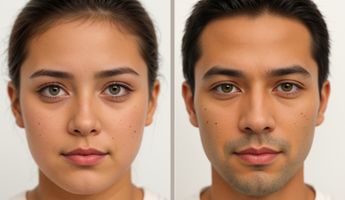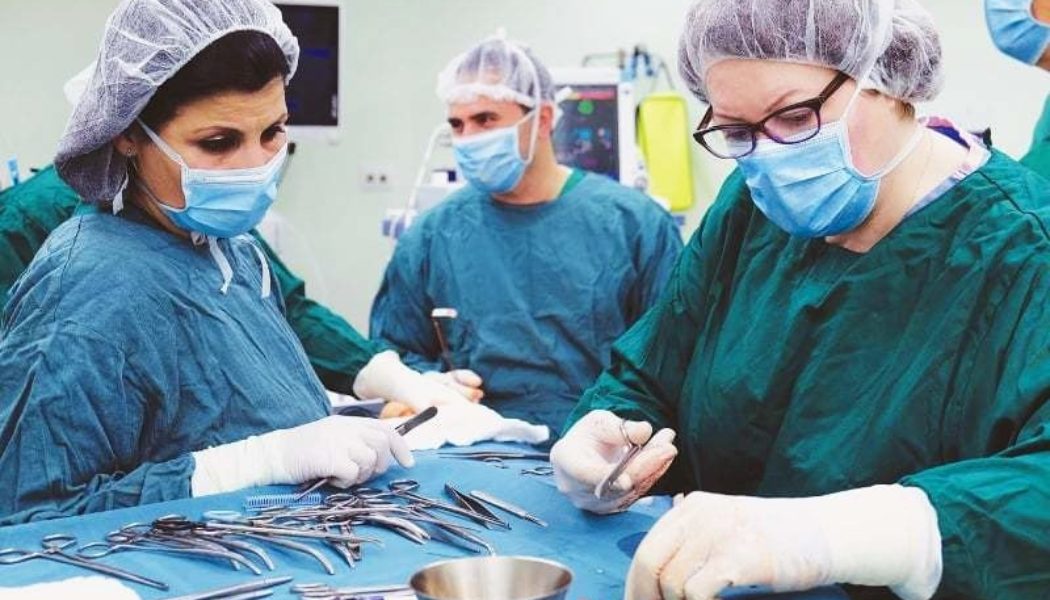Sex Reassignment Surgery (Female To Male) in France
Search and Compare the Best Clinics and Doctors at the Lowest Prices for Sex Reassignment Surgery (Female To Male) in France

Find the best clinics for Sex Reassignment Surgery (Female To Male) in France
No clinics available
Thailand offers the best prices Worldwide
Price: $ 556

- Home
- France
Compare Before & After Photos of _procedure_photos.phpSex Reassignment Surgery (Female To Male)


Half-side view


Front view


Half-side view


Front view


Front view


Front view


Front view


Front view
WHY US?
At Medijump, we're making medical easy. You can search, compare, discuss, and book your medical all in one place. We open the door to the best medical providers worldwide, saving you time and energy along the way, and it's all for FREE, no hidden fees, and no price markups guaranteed. So what are you waiting for?

Free

Best Price

Widest Selection

Risk-Free
What you need to know about Sex Reassignment Surgery (Female To Male) in France

Some people are born male and some are born female. While there are some people who are transgender, whose gender identity does not match their assigned sex. Sex change surgery, also known as gender reassignment surgery (GRS) or sex reassignment surgery (SRS) is there to help these people. This is a surgical procedure that changes the sex of a person. It changes a transgender person’s physical appearance according to there identified gender. It treats gender dysphoria in these people. This includes both feminization and masculinization surgeries. In masculinization surgery, there are two domains:
- Top surgery
- Bottom surgery.
In top surgery, mastectomy is performed to remove the breasts and give your chest a more male-like contour. Bottom surgery involves increasing the length of the clitoris which is called metoidioplasty, production of a penis, and scrotum which are known as phalloplasty and scrotoplasty respectively, and removal of the uterus that is a hysterectomy. This surgery is not for everyone. A number of things are considered before opting for surgery. However, normal people with assigned gender can also go for this if they want to.
Before the operation, your assigned sex does not correspond to your gender identity. You suffer from gender dysphoria. You feel uncomfortable in your skin. However; after the surgery, you are a person of your desired sex. You are converted from a female to a male.
What is the cost of Sex Reassignment Surgery (Female To Male) in France?
Like any intricate healthcare process, the price for undergoing Sex Reassignment Surgery (Female To Male) is not a fixed figure in France. The final tally significantly sways due to issues like the patient's comprehensive health status, distinct surgical necessities, and the operating surgeon's level of proficiency. It's vital, too, to factor in the cost of post-procedure care, prescribed medicines, and extra treatments, all of which substantially contribute to the total expenditure.
Moreover, distinct clinics situated in France might provide an array of payment structures or offer financial aid alternatives. It's advisable to undertake thorough investigations or reach out to prospective clinics directly to obtain a precise cost prediction.
What does a Sex Reassignment Surgery (Female To Male) Procedure Involve?
Anesthesia is given to ensure that the patient does not suffer from pain during the surgery. Top and bottom surgeries are performed differently.
-
Mastectomy: It is performed in two ways. In one method, an incision is given around the areola and excessive fat and breast tissue are removed through it. The skin is left as it is for a year. It retracts in this period of time. This method leaves prominent scars. In the other method, excess skin is also removed along with the tissue and fat. This leaves fewer scars. After this, male-like the contour of the chest is obtained.
In the other step, female reproductive organs that are present inside your body are removed.
-
Hysterectomy: Total Hysterectomy is the removal of uterus and cervix. Another surgery, bilateral salpingo-oophorectomy (BSO) is performed to remove fallopian tubes. In this way, the entire female reproductive system is eliminated from the body.
After this, procedures for the construction of male reproductive organs begin. They include,
- Metoidioplasty: Androgenic hormones are given to increase the length of the clitoris. Length is increased to almost 1.6 to 2 inches.
- Phalloplasty: It is performed to create a penis or to increase the length of it. It can be done in 4 ways. All of these work on the same principle. A flap of skin is taken from a donor site of the body such as an arm or abdomen to make a penis out if it. It is joined to the urethra. This is the most complicated step of GRS. An erectile prosthesis is inserted into the penis to achieve an erection.
- Scrotoplasty: Scrotum is produced from labia majora and prosthetic testes are inserted into it.
How Long Should I Stay in France for a Sex Reassignment Surgery (Female To Male) Procedure?
It is a long procedure involving a number of surgeries. There is top surgery and bottom surgery. Mastectomy takes 2 to 3 hours in the operation theatre. While bottom surgery requires more time. It takes 8 to 10 hours for a female to male GRS. You should plan to stay in the area for at least 14 days after your Procedure, During this duration, your health conditions are monitored regularly and your stitches are removed after 10 to 14 days. You can go home when allowed to by your physician.
What's the Recovery Time for Sex Reassignment Surgery (Female To Male) Procedures in France?
You will have to take 2 weeks off work. After 2 weeks, you can start a light activity and can go back to office work. A Patient will need more time to get back to physical work. You can start strenuous activity 4 to 6 weeks after bottom surgery. Pain killers are given in this period to deal with moderate pain. Scars take some time to fade away. It can take years after the surgery to settle both physically and psychologically.
What sort of Aftercare is Required for Sex Reassignment Surgery (Female To Male) Procedures in France?
Following points should be considered to look after you post-surgery:
- Go for regular check-ups.
- Take your medicines as and when prescribed by the doctor.
- Live with someone who takes care of you while you recover.
- Abstain from sexual activity till allowed by your doctor.
- Do not take a bath or shower with bandages intact. It can cause infection.
- Avoid strenuous exercise in the early few days after surgery.
- Do not lift heavy objects; it puts pressure on your stitches.
- Avoid excessive movement. Take a rest.
What's the Success Rate of Sex Reassignment Surgery (Female To Male) Procedures in France?
The success rate of Sex Reassignment Surgery (Female To Male) within France depends on a spectrum of elements. Such factors encompass the proficiency and prior expertise of the surgical unit, the comprehensive health condition of the person, their mental readiness, and compliance with the suggested after-treatment attention. An abundance of research has pointed out that a majority of individuals who choose Sex Reassignment Surgery (Female To Male) acknowledge a marked enhancement in their lifestyle quality, elevated mental health, and a noteworthy contentment level with the physical transformations.
According to a study, 97% of the people who went through this surgery found their results satisfactory. You need to be sure before opting for it, as it is a lifetime decision. GRS is mainly for the treatment of dysphoric and transgender people.
Are there Alternatives to Sex Reassignment Surgery (Female To Male) Procedures in France?
The following are some alternatives to sex reassignment surgery:
- Hormone replacement therapy: this therapy aids in changing your secondary sex characteristics according to your desired sex. In the case of female to male sex change, testosterone is given. This induces hair growth and coarseness of voice. It reduces breast growth and changes in fat distribution in your body. It also stops menstruation.
- Altering physical appearance: you can alter your physical appearance, your dressing, your hair, your makeup in accordance with your desired sex. Do regular exercises to build up muscle mass which will make you look like a male.
- Psychological counseling: it will make you handle your personality. Gender reassignment surgery cannot be reversed. Therefore, you should make your decision wisely.
- Cosmetic surgery: it is a wide field covering a number of domains. It can alter your facial features, your body fat, your waist, your stomach, your chest to transform you into your desired gender. You can go for liposuction, mastectomy, Botox, fillers, Rhinoplasty, etc.
All of the methods, mentioned above are not permanent but are helpful. For permanent change, you have to go for sex reassignment surgery.
What Should You Expect Before and After the Procedure
Prior to initiating the Sex Reassignment Surgery (Female To Male), it is necessary to ensure each individual undergoes thorough psychological analysis and counseling. These checks serve to affirm the patient's emotional readiness and ability to cope with the aftermath of the procedure. In addition to mental health evaluations, multiple medical assessments are implemented to inspect their overall health state. Recognizing any pre-existing health issues is of utmost importance as they can potentially impact the result of the surgery. Regularly scheduled consultations with knowledgeable healthcare professionals are fundamental to this process. These meetings will entail in-depth explanations and discussions to help formulate a holistic understanding of the entire procedure and its ensuing effects.
After the execution of the surgical procedure, there's a need for mental readiness for an extensive recovery period. This stage typically demands diligent post-procedure care and major lifestyle adjustments. Surgical recovery isn't typically a swift process - it's a path that entails physical changes and lifestyle adaptations, necessitating a period of adjustment for the patient. The adoption of healthy habits becomes particularly important during this period. Activities like regular physical activity, adhering to a nutritious diet, and incorporating stress-relief practices are proven to carry several benefits. Moreover, in addition to the emphasis on physical recuperation, mental health should also be prioritized equally.
What are Potential Risks of Sex Reassignment Surgery (Female To Male)?
Each surgical procedure comes with inherent risks and potential complications, including Sex Reassignment Surgery (Female To Male). These might encompass general surgical risks such as infection, bleeding, or adverse reactions to anesthetic drugs. Specific to Sex Reassignment Surgery (Female To Male), there may also be healing-related risks, which could result in necrosis or lackluster cosmetic outcomes. Educating oneself about the possible complications of surgical procedures is beneficial for better preparation.
Additionally, extended exposure to hormonal treatment might escalate the risk of cardiovascular ailments or osteoporosis. There could also be mental health concerns such as depression or anxiety, which may spring from society's responses or personal adaptation to a new identity. Frequent consultations with a healthcare professional are essential to keep track of and mitigate any possible risks or complications.
Whilst the information presented here has been accurately sourced and verified by a medical professional for its accuracy, it is still advised to consult with your doctor before pursuing a medical treatment at one of the listed medical providers
No Time?
Tell us what you're looking for and we'll reachout to the top clinics all at once
Enquire Now

Popular Procedures in France
Prices Start From $497

Prices Start From $1,552

Prices Start From $500

Prices Start From $1,000

Recommended Medical Centers in France for procedures similar to Sex Reassignment Surgery (Female To Male)

- Interpreter services
- Translation service
- Religious facilities
- Medical records transfer
- Medical travel insurance
- Health insurance coordination
- TV in the room
- Safe in the room
- Phone in the room
- Private rooms for patients available

- Interpreter services
- Translation service
- Religious facilities
- Medical records transfer
- Medical travel insurance
- Health insurance coordination
- TV in the room
- Safe in the room
- Phone in the room
- Private rooms for patients available

- Interpreter services
- Translation service
- Religious facilities
- Medical records transfer
- Medical travel insurance
- Health insurance coordination
- TV in the room
- Safe in the room
- Phone in the room
- Private rooms for patients available

- Interpreter services
- Translation service
- Religious facilities
- Medical records transfer
- Medical travel insurance
- Health insurance coordination
- TV in the room
- Safe in the room
- Phone in the room
- Private rooms for patients available

- Interpreter services
- Translation service
- Religious facilities
- Medical records transfer
- Medical travel insurance
- Health insurance coordination
- TV in the room
- Safe in the room
- Phone in the room
- Private rooms for patients available

- Interpreter services
- Translation service
- Religious facilities
- Medical records transfer
- Medical travel insurance
- Health insurance coordination
- TV in the room
- Safe in the room
- Phone in the room
- Private rooms for patients available

- Interpreter services
- Translation service
- Religious facilities
- Medical records transfer
- Medical travel insurance
- Health insurance coordination
- TV in the room
- Safe in the room
- Phone in the room
- Private rooms for patients available

- Interpreter services
- Translation service
- Religious facilities
- Medical records transfer
- Medical travel insurance
- Health insurance coordination
- TV in the room
- Safe in the room
- Phone in the room
- Private rooms for patients available

- Interpreter services
- Translation service
- Religious facilities
- Medical records transfer
- Medical travel insurance
- Health insurance coordination
- TV in the room
- Safe in the room
- Phone in the room
- Private rooms for patients available

- Interpreter services
- Translation service
- Religious facilities
- Medical records transfer
- Medical travel insurance
- Health insurance coordination
- TV in the room
- Safe in the room
- Phone in the room
- Private rooms for patients available
Sex Reassignment Surgery (Female To Male) in and around France
About France
France, renowned for its architecture, art, cinema, cuisine, fashion, literature, music, and wine, with the most significant attraction being its glorious capital city, Paris - home to the famous Eifel Tower. With its small medical tourism industry, France sees far fewer medical tourists than its neighbors Germany and Spain, however, many travel each year for Sex Reassignment Surgery (Female To Male) procedures among other popular procedures. Other than Paris, popular locations for private medical centers, include Bordeaux, Lyon, and Montpellier.
Popular Parts of France
France has welcomed more than 80 million visitors in the past few years. The country does have a lot to offer, from culture to iconic landscapes, making it an ideal place to spend a memorable holiday.
- Paris, the capital of France, is an international center of culture, fashion, art, and gastronomy. Hundreds of writers have written about their love of this city, and it is easy to see why. With thousands of years of history, the city is filled with iconic monuments. Some of the most famous and most visited landmarks are the Eiffel Tower, Arc de Triomphe, and Notre Dame. This stunning city is also known for its art nouveau cafes with pretty chairs lining the terrace and the beautiful banks of the Seine that are perfect for romantic walks.
- Bordeaux is known for its wine, lively restaurant scene, and the futuristic La Cité du Vin. Tourists can take a tour of a winery and taste some of the world’s best wines. Complete the wine tour by visiting La Cité du Vin, an ultra-modern cultural center that provides comprehensive information about wine production. Other than the wine, there are countless things that tourists can do in this city. Visit Place de la Victoire, a pretty square with amazing architecture, or visit Musée D’Aquitaine to see historical collections from all around the Aquitaine region.
- Lyon is the third-largest city in France and it is famous for its cuisine and historical landmarks. The city was an important area for silk production and had lots of trade with Italy and tourists can see the Italian influence in the city’s architecture. The city attracts travelers to come and visit its many museums such as the Museum of Fine Arts of Lyon, Museum of Miniatures, and Textile Museum. Tourists who love cinema will be delighted to explore the Lumiere Institute. Since Lyon is famous for its gastronomic scene, tourists should taste its famous specialties in a Bouchon.
- Nice is the second-largest tourist destination in France. Located on the Mediterranean coast, the city is brimming with stunning beaches, hilltop lookouts, and glamorous restaurants. Thanks to its Mediterranean climate, it is always filled with sun-seekers all year round. The city in the past also attracted many artists such as Henri Matisse, Marc Chagall, Pablo Picasso, and Pierre-Auguste Renoir. The city pays tribute to the artists in its top museums, the Musée Chagall and the Musée Matisse.
- Marseille is the second most populated city in France. Found by Greek sailors in 600 BC, it is one of the oldest cities in Europe. With a complex history, it is now a melting pot of different cultures. Discover the city by shopping in one of the colorful markets like the Noailles market. Do not forget to visit the Calanques to admire its beauty, wander around the interesting Mucem, get lost in Le Panier, and stroll around the scenic Corniche.
Weather and Climate in France
France generally enjoys mild summers and cold winters except in the Mediterranean area, which enjoys mild winters and hot summers. Spring starts in March and ends in April and the streets in spring are bursting with colors, making it a beautiful time to visit the country. It rains a lot during this season but the weather will start to brighten up in April. The temperature ranges between 7.5 °C in early March and 13.6 °C in May. June is when the summer starts and this season is a high season for tourism. The average temperature in summer is around 24 °C and the season experience little rainfall (around 11 days every month).
Autumn lasts from September to November. With an average of 12 °C, the temperature is still pretty mild to enjoy some outdoor activities. The temperature will slowly decrease in November when it reaches an average of 7.5 °C. Autumn is also the season of grape harvests, meaning it is a great time for wine tours. Winter is during the months of December to February and the weather can be really cold during this season with an average temperature of 5 °C. Despite the cold, December can be a delightful time to visit the country since it is one of the most festive months in France.
Getting Around in France
France has 34 airports, but the busiest are the airports in Paris: Paris Charles de Gaulle and Orly. Paris Charles de Gaulle Airport is the largest airport in France and the second largest in Europe. The airport serves domestic and international flights. It connects France with almost every country around the globe. It also serves budget airlines such as EasyJet and Norwegian Air Shuttle. While Charles de Gaulle airport serves as the main airport, Orly Airport serves as a secondary hub for domestic and overseas territories flights.
Traveling around France is easy. The wide range of airports let tourists travel around the country quickly by domestic flights. The country also has a great rail system since it is the creator of the earliest high-speed train system. The TGV (Train a Grande Vitesse) connects 150 cities in the country and Europe. It speeds up to 200 miles per hour. Other than the TGV, there are also Intercity trains, TER, and AutoTrain. The easiest way to buy train tickets is online. The prices vary widely but you will get good bargains if you book early. Before getting on the train, remember to validate your ticket in yellow machines known as compostage de billets.
Taxis can be found easily around France and you can hail a taxi from a taxi rank (station de taxi) outside railway stations, airports, or main areas in cities. You can also hail one directly from the street or by telephone. The taxis are metered and the base fare is around €4.10. If there are more than four passengers, there will be an extra fee of €2.50 and the driver can charge an extra €2 if you have a lot of luggage and Taxis are usually more expensive in Paris.
Tourist Visas in France
France is a member of the Schengen Agreement. Therefore, holders of ordinary passport from 62 countries including Australia, Malaysia, Singapore, and the United States do not need a visa to enter the country for short stays of up to 90 days. Other nationals not listed need to apply and obtain a visa before entering the country. It is advisable to always check at the nearest France embassy or consulate for a France visa.
Additional Information
- Local Currency: The official currency in France is the Euro (€). US$1 converts to €0.85.
- Money & Payments: ATMs (known as DAB - distributeurs automatiques de billets) are widely available in the country, particularly in airports, train stations, and street corners. Credit and debit cards are accepted almost everywhere, including shops, supermarkets, restaurants, and hotels. Tipping can sometimes be mandatory, usually around 10% in restaurants.
- Local Language: French is the official language. Most people in large cities will speak English, especially in hotels and tourist sites. But it is better to know some French.
- Local Culture and Religion: France has a diverse religion under secular principles. The major religion in the country is Christianity, but other religions such as Islam, Buddhism, and Judaism are freely practiced.
- Public Holidays: There are 11 official public holidays in France, including New Year’s Day, Easter Monday, Bastille Day, and Christmas Day.
Popular Searches
- Plastic Surgery in Thailand
- Dental Implants in Thailand
- Hair Transplant in Thailand
- Breast Augmentation Thailand
- Gastric Sleeve in Thailand
- Gender Reassignment Surgery in Thailand
- Laser Hair Removal in Bangkok
- Botox in Bangkok
- Dermatology in Bangkok
- Breast Augmentation in Bangkok
- Coolsculpting in Bangkok
- Veneers in Turkey
- Hair Transplant in Turkey
- Rhinoplasty in Turkey
- Stem Cell Therapy in Mexico
- Rhinoplasty in Mexico
- Liposuction in Mexico
- Coolsculpting in Tijuana
- Rhinoplasty in Korea
- Scar Removal in Korea
- Gastric Sleeve in Turkey
- Bone Marrow Transplant in India
- Invisalign in Malaysia
- Plastic Surgery in the Dominican Republic
- Tummy Tuck in the Dominican Republic
- Plastic and Cosmetic Surgery in Poland
- Rhinoplasty in Poland
- Hair Implant in Poland
- Dental Implants in Poland
- IVF in Turkey